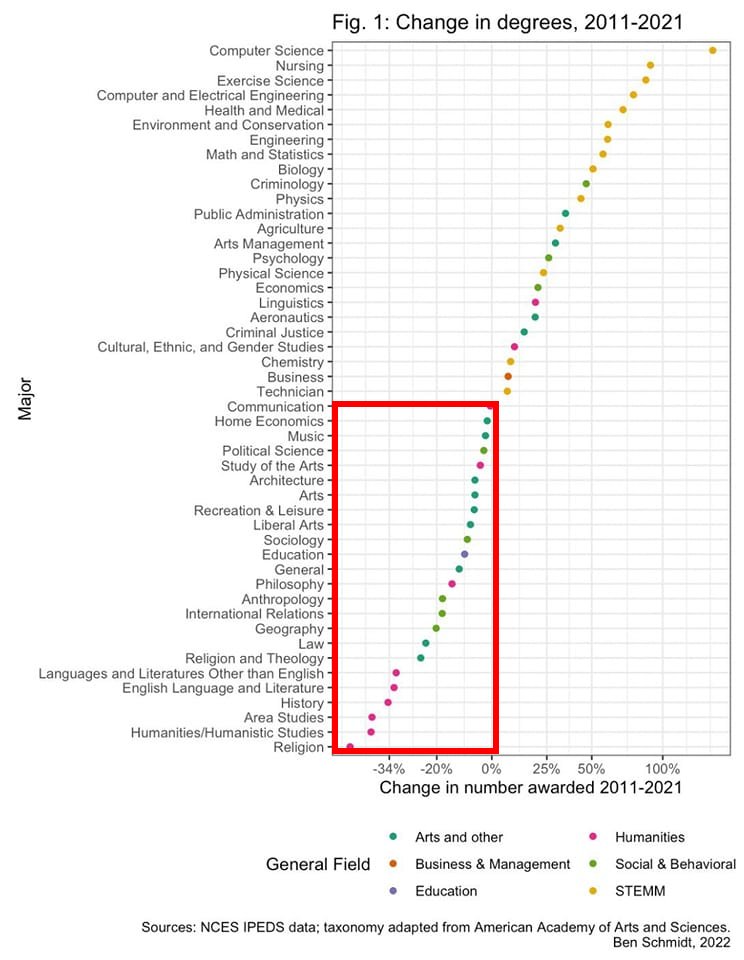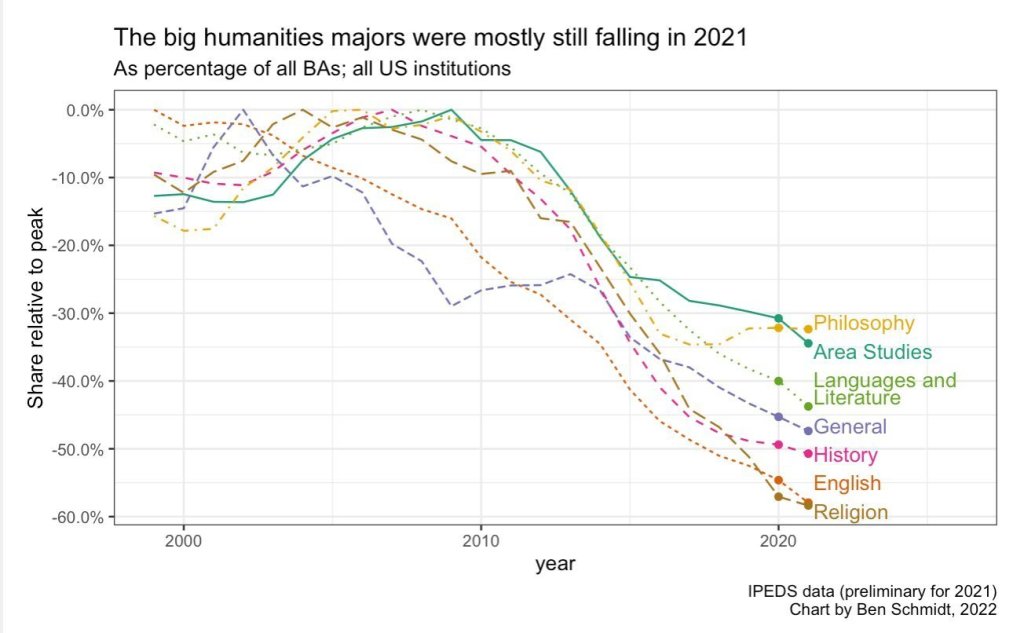In colleges and universities, at least. Whether other institutions are picking up the slack and providing the humanities knowledge and experience young human beings need — I don’t have good data.


Questions before forming hypotheses:
* Have the other majors become more attractive to students, by offering more relevance, job prospects, a healthier and more optimistic environment?
* Is it that the humanities have made themselves unattractive, by offering irrelevance, adversarialism, and cynicism?
* Majors in Philosophy and Languages have declined badly, while majors in History, English, and Religion have declined terribly — why?
Humanities polluted with Marxism, wokism, gender-idiocy .. flee from evil.
Another few considerations before forming a hypothesis:
Undergraduates at four-year institutions generally choose their majors either at the end of their sophomore year, or at the beginning of the junior year. On what evidential basis could the average undergraduate sophomore or junior judge the whole of the humanities offerings at their college or university with respect to issues of relevance, job prospects, or the “optimistic” or pessimistic nature of “the environment”? The average undergraduate can’t even manage to master the syllabus for the individual classes he or she is enrolled in, much less the readings for those classes, much less the implications of those readings for the world beyond the classroom. How would such students judge classes they hadn’t attended, professors they’d never met, readings and authors they’d never heard of, departments of whose existence they were ignorant, ideas they’d likely never conceptualized, etc. across “the humanities,” much less the relation of any of those things (and many others besides) to a wider world of which they were almost entirely ignorant?
I taught thousands of undergrads at 10 institutions, on two continents (in two languages), over a 26 year career in higher education–from the Ivy League down to community colleges. Less than 1% of the students I met would even be able to approximate the preceding task. Frankly, I’m skeptical that very many academics would be able to do it. Or non-academics.
Without answers to the preceding questions, these graphs are little more than an assemblage of colorful dots and lines. We don’t just lack good data, but–slogans aside–lack anything like a plausible explanatory framework for understanding it.
As a person of faith, my perception is that most religious institutions have no understanding of the problems you teach about. They are lowest understandably as they are highly vulnerable to ideological colonization. This destroys their function as salt and light. Many seem trapped in a paradigm that is decades out of date. It used to be that the biblical stories were understood broadly and the job of an evangelist would be to clarify a few objections. Now there is no understanding as people’s mental software has been dumped for PoMo nonsense. Even my mom who has had decades of ministry can’t understand that Jesus being the way, truth and life means we should care about Truth and filter sources we trust carefully.
She is totally demoralized by her “neutral” press coverage. Terrified and full of anxiety about the virus. But-You give her anything outside mainstream views and she rejects it. “That’s just anecdotal. That meta study is too overwhelming. That medicine is horse paste. I don’t listen to Trudeau (but believe in many of his policies). Trump is very bad.” The selection bias and overton window she is manipulated by do not register for her. Yet, all of this reveals more clearly who the best religious institutions are. Hillsdale for example might be one of the best. But it feels weird to self segregate. As if one then intends to only appeal to other christians in one’s career. It is difficult working in culture as the militance against people like me is escalating. The potential is to influence culture which affects worldview. But more and more I feel unwelcome and locked out.
Thoughtful, Ben.